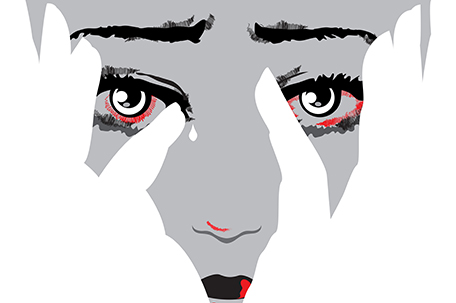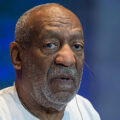
By Rev. Dr. Najuma Smith-Pollard
Pastor – Word of Encouragement Community Church
Whether or not you agree he is a rapist; agree or disagree with the 55 women who have come forward with their truth; or whether you feel we should stand with Bill Cosby or be a part of the deconstruction of the icon, one thing that is undeniable.
This story provides a great opportunity for the world, especially the Black church, to tackle the larger discussion around prevailing sexual violence and rape culture in America.
In 2013, I wrote my dissertation on the role of the Black preacher to “Lift the Veil of Sacred Silence around Sexual Violence Through Prophetic Preaching and Teaching.” The premise of the document, which is soon to be published, is that as the preacher (spokesperson for God), we have a mandate and opportunity to lift the veil of the “sacred” silence that so many of our parishioners hide beneath when it comes to trauma associated with sexual violence. [This is also true of domestic violence, child abuse and other grave matters, but for the sake of the document, my focus was on sexual violence]
So here we have it. Our beloved and cherished figure, Bill Cosby, has been accused of serial rape; and by his own words, invited us in to know that the use of a narcotic was part of his process of control; has now officially been charged with a sexual assault crime.
I have thought a great deal about this story, and like many, have had to struggle to separate my thoughts about a persona and the real person. As survivor and pastor, this is what I definitely know to be true, that silence is not a just response. What shall the Black Church say? What will our stand be?
Unlike former Penn State football coach Jerry Sandusky [convicted for sexual molestation of minors], Bill Cosby is not just in our front or back yard, brother man is in ‘da house’, as so many African Americans watched his shows faithfully, and even viewed the TV model of Black family as a model to uphold. He is intimately a part of Black culture and his influence runs deep.
But, if we go silent on this, we have failed our congregations and community greatly. So, to help think through this, I’d like to offer eight reasons why the Black Church has a great opportunity to speak out against sexual violence using as a backdrop the allegations and charge against Bill Cosby.
Reason 1 – Accountability: Bill Cosby is not Cliff Huxtable. So, while we don’t want to put Cliff Huxtable on the stand, most certainly Bill Cosby should be and held accountable for his wrong doing. Cliff Huxtable gave us a model of family apart from the oppressor, but we can not confuse him with the real person.
Regardless of status, reputation, social contributions, etc. We don’t get a pass because we have done good. Accountability is one of the failings in our system when it comes to sexual violence. Often times the perpetrator is not held accountable.
Understand this, the women who have chosen to speak up and follow-through with a charge are simply holding Mr. Cosby accountable for his wrong doing. Churches have an opportunity to encourage our community, and victims especially, that you have the right and we support you in holding your abuser accountable for their crime.
We all agree a thief should be held accountable for stealing; equally so should the molester, rapist, and pedophile, because they have stolen lives (maybe not in the physical sense); but they have stolen innocence, trust, security, hope, and a person’s self worth.
Reason 2 – Bring Balance to our Theology: To be silent on Bill Cosby but rage about same sex marriage becoming legal is an imbalanced stand of righteousness. For all those pastors who were quick to quote Leviticus, and rage about abomination, please read the whole text. Chapter 18 isn’t just about men not lying with other men, but God demonstrates God’s clear concern and sets a standard for the sexual mortality of a nation.
We do our congregations a disservice when our theology is imbalanced meaning we pick and choose what we will and won’t take a loud vocal stand for or against. If one has a problem with same-sex marriage, by golly, you ought to have an equal response to sexual violence.
While we don’t hear God use the term rape, molestation, or sexual assault in the text, the indication that these sexual acts of violence are not pleasing to God. And then, there is Malachi 2:13-15. If we quoted that on a Sunday, many married folks would have to repent.
Reason 3 – Relevant Subject: To be silent on Bill Cosby is a missed opportunity to speak to the real people in our pews who have been victims of sexual violence. Here are a few statistics every pastor should know.
The national average suggests that 1 in 3 women and 1 in 6 men have been sexually assaulted in their lifetime. Translation, if you have 50 women in your church, 16 to 20 of them have had similar acts of sexual assault, rape, happen to them as have been described by the 55 women who have come forward about Bill Cosby.
If you have 50 men in church, that means 8 – 10 of them have been victims of sexual assault. And if those are the numbers of victims, then don’t miss out on doing the math on the perpetrators, that are also in our congregations. If you have 100 people in your church, that means you could possibly have in your congregation 10-20 persons who committed a crime of sexual assault; and that have never been reported nor brought to justice.
Our claim as clergy is that we always want to be relevant, timely, and speaking to the present culture. Quoting rappers doesn’t equate to being relevant. Sexual violence is the relevant subject.
Reason 4 – Complicit Silence: To be silent on Bill Cosby is to be complicit with a prevailing rape culture in our nation (and the world). Pastors, especially my brother pastors, I urge you to be intentional to raise your voices against sexual violence. This may mean you run the risk of upsetting those leaders in our congregations who are major contributors, but woe be unto us, if we allow those who are sitting in our congregations waiting and hoping that we will say something to their pain and we do not. To be silent on Bill Cosby makes it easier for the ‘Cosby’ sitting in our pews to sit comfortable and unaccountable and our complicit silence also becomes a culprit. We can’t be prophetic and silent.
Reason 5 – Deconstruct Stereotypes about Sexual Predators: Rapists, molesters, and pedophiles don’t all wear black masks and lurk in dark places. Actually, many perpetrators are known to the victim or from within their family and social circle. The problem here is, based on our stereotypes of predators. No one would have ever believed Bill Cosby could do these things. All too often, victims face this kind of disbelief when they courageously report a violation by a family member, on the job, by a teacher/coach, someone in church or a close friend of the family. There is this disbelief that a person of caliber, status, success, education and savvy could never do such a horrible thing, but they can and they do. We must not assume that we know what a rapist, molester or pedophile looks like. Predators and perpetrators need healing too, and by lifting the issue the opportunity is made available to repent and seek help.
Reason 6 – Deconstruct Stereotypes about Victims: Can a White woman with status, who drinks, does recreation drugs really be a victim? That seems to be the tone, around this Bill Cosby debate that somehow these women are not real victims. Some were young aspiring actresses, used recreational drugs and were looking for an easy way up the entertainment ladder. This tone brings on critiques that their tears aren’t real and their stories are untrue. The criticism these women and others are facing is symbolic of the criticism many victims of sexual violence face because there are stereotypes about victims of sexual violence.
This is the leading cause for victims not reporting the crime (male and female). Just like we can not assume we know what a perpetrator looks like, neither can we make the same flawed assumption about victims. Pastors, they are in our pews, serve on our board, sing in our choirs, shout in the aisle and tithe faithfully.
Don’t assume you can look out into your congregation and guess who is a survivor. We can’t! But we can speak to the pain, create the space for healing and hope and remind survivors God sees you, knows and cares!
Reason 7 – Social Justice Mandate: To be silent on Bill Cosby is to forget the church was given a powerful mandate in Micah 6:9 to do mercy and love justice. For the overwhelming majority of victims, another leading reason people (male and female) rarely report these kinds of crimes is often due to the failure of justice system to be on the side of the victim. And all too often, when a case does make it to court, victims are forced to being re-victimized due to lack of belief in his or her story.
Not only are their failures in the justice system, but when we see predators not held accountable by their organizations, denominations, colleagues, and/or groups, this is also a miscarriage of justice. We must make the church (worship space) a safe place for individuals to report when they have experienced assault, regardless of who the perpetrator may be; and give individuals hope their reporting will be supported and not shamed.
Reason 8 – Fallen Heroism: Not too long ago, one friend of mine said, “Bill Cosby was our hero, I just can’t believe it.” We are naturally drawn to people with power and position; and in spite of the crime before us, the person of power and position automatically gets a pass without question. When our heroes fall, it is difficult to grasp that persons in power and position would struggle with a sickness that would lead them to rape for power and control. We are more willing to blame that the victim had a role in their assault.
In the churches, social groups, and community, this is a recurring concern. This also explains the difficulty for some to speak out against sexual assault, because we don’t like to bring down our heroes, we don’t want to see our heroes fall.
Collectively, we don’t gain from protecting our heroes from being held accountable. Powerful and prophetic moment in the sacred text is when Nathan said to David “You are the man…” 2 Samuel 12:7
This case is bigger and broader than William ‘Bill’ Cosby. This is not just about a person, but a culture, systems of oppression and injustice; its about the need for restoration and healing. Today, we have an opportunity to use our various platforms to speak out against sexual assault, because it is the relevant issue and the moment is today.
















Leave a Comment